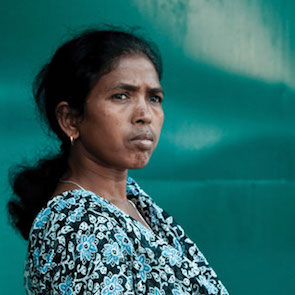
Sometimes the colonizer becomes the colonist. For some, this is what has happened to India, specifically as regards land grabs in Ethiopia and elsewhere.
But the transformation doesn’t stop at “colonialism”. Colonialism is more than settlers and mass and brutal extraction of other peoples’ natural resources. Colonialism involves imperialism, empire building, and not only abroad. Welcome to Chhattisgarh … again.
Chattisgarh has been in the news the last few years for a series of “curious adventures” on the part of police, security, and military forces, responding to a purported Maoist “crisis”. Binayak Sen spent three years and some in prison, for no real reason. Earlier this year, Ilina Sen, a prominent feminist scholar and activist, was charged with organizing an international Women’s Studies conference without proper registration of “foreign nationals.” Kopa Kunjam, a Ghandian human rights and development worker, has also been in prison for years for similarly spurious reasons. Himanshu Kumar worked for almost two decades in the jungles of Chhattisgarh, teaching the poorest of the poor how to vote, how to access better food and any health care. His reward? His ashram was burned to the ground, two years ago. As is so often the case, when security forces occupy a zone, they bring sexual violence as part of the package. For women, the price of national security is high.
And so is the price of national “wealth”. Ask Soni Sori, recently arrested last week in Delhi, shipped back to Chhattisgarh, interrogated there, and sent to hospital yesterday, unconscious and with back and head injuries. Police claim she slipped in the bathroom There’s no real evidence against Soni Sori, nothing that actually links her with any Maoist group or identifies her as a Maoist. Instead, there are “suspicions.”
What is going on in Chhattisgarh? The State would tell us that these stories are part of the larger “security” narrative, that there is a Naxalite, or Maoist, emergency in Chhattisgarh that necessitates the infamous state of exception. Dangerous times require dangerous men … with even more dangerous guns and techniques, including torture.
This is not a story of “poverty”. Rather it is a story of wealth. Chhattisgarh is rich in resources, has an extensive forest, and a large tribal population. The women of Chhattisgarh historically have enjoyed a unique position in India … and beyond. The population is more or less equally divided between women and men. Women have participated in every aspect of agricultural production, of labor, and of public life. Chhattisgarh is a place in which gender equity and female subservience have always been in tension.
With the arrival of the global market, that tension has increased. The areas women dominated, in particular that of food security and food sovereignty, don’t carry the same value in a global economy. Both multinationals and the national government have given men positions of authority in the new economies.
Soni Sori is a primary school teacher. Thanks to “security” campaigns, Chhattisgarh has one of the lowest literacy levels in India. State security forces and their paramilitary brethren occupied schools. Then they were attacked by Maoists. The State then closed the schools and moved them to State-controlled areas. For village children, those are impossibly distant areas, both in miles and in culture. And so, literacy levels, never high, plummeted. And what is the shining solution? Build a residential complex, even further away, for the few high school students who are preparing for engineering and medicine.
The rest, and especially the girls, can simply work the fields, build the roads and bridges and malls, watch the distance between rich and poor grow greater and greater, and more and more violent. This is the crisis in Chhattisgarh. Chhattisgarh doesn’t need more troops. It needs more teachers, more schools, more women like Soni Sori. Soni Sori haunts more than India. Soni Sori haunts the world economy.
(Photo Credit: Front Line Defenders)